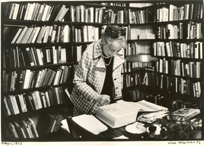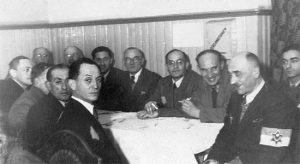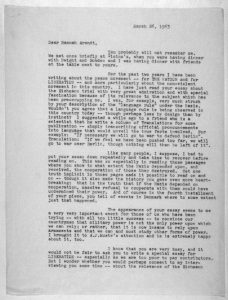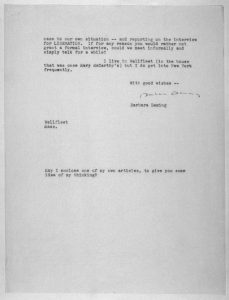Controversy in Eichmann in Jerusalem

- Posted by arendt
- Posted in banality of evil, Barbara Demming, Eichmann in Jerusalem, Eichmann Trial, ethics, evil, genocide, Hannah Arendt, Jewish Councils, Judenrat, NEH Summer Scholars, personal responsibility, Raul Hilberg

Source: Holocaust Education & Archive Research Team
Among the many controversial aspects of Hannah Arendt’s Eichmann in Jerusalem, which originally appeared as a multi-part series in The New Yorker, the most incendiary points she made appeared in chapter VII. In that section of the book, entitled “The Wannsee Conference, or Pontius Pilate,” Arendt took to task Jewish leaders who served on the Jewish Councils, or Judenrat, for “cooperating” with the Nazis by, among other things, providing lists of names of those to be deported to the death camps. Arendt wrote that she “dwelt on this chapter of the story…because it offers the most striking insight into the totality of the coral collapse the Nazis caused in respectable European society.” (p. 124).
The role Jewish leaders had played had been an issue at the trial, although it was not the first time that the matter had been discussed. As Arendt noted, Raul Hilberg, whose work Arendt relied heavily on in her report, had exposed it “for the first time in all its pathetic and sordid detail” in his comprehensive history, The Destruction of the European Jews, published in 1961. (p. 118)
Was it Arendt’s “tone” of biting sarcasm, evidenced repeatedly in the book that ratcheted up the degree of negative criticism she received? Should she have been more empathetic to the plight of those Jewish leaders confronted with such a terrible dilemma? These and other issues will surely occupy us in our conversations during the seminar. For now, I wanted to share some materials from Arendt’s archived papers in the Library of Congress to give you a sense of the range of responses she got from some readers who felt either relieved or condemned by her words. (For those of you interested in archival research, or who might use it as a source of inspiration for your seminar projects, I highly recommend exploring the Hannah Arendt Papers in the Library of Congress, partially accessible online). The letters below excerpted from those archives come from the Correspondence—Miscellaneous—English language—D-F—1963-1965 (Series: Adolf Eichmann File, 1938-1968, n.d.).
To give one “positive” example, the noted advocate of nonviolent social change, Barbara Demming, who had met Arendt one evening at Ticino’s, an Italian Restaurant in Greenwich Village, New York, which I used to frequent in the 1970s (sadly, no longer there!) wrote Arendt, praising the book.


But, of course, not all responses were supportive. Among others, Arendt had cited the testimony of Pinchas Freudiger, who was the former Baron Philip von Freudiger, of Budapest to illustrate “the cooperation between the Nazi rulers and the Jewish authorities.”(p. 124) After reading her book, Freudiger wrote an extended response to Arendt.
Freudiger Letter to HA, p. 1, Freudiger Letter to HA, p.2,Freudiger Letter to HA, p. 3, Freudiger Letter to HA, p. 4
Here is Arendt’s reply:
Looking forward to sharing these materials in our seminar discussions.

